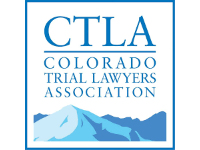Medical liens can sometimes be used against you in your claim as well. If the opposing party or insurance company thinks your medical bills were too high, they may try to claim that they don’t need to pay you the full amount either. These things can make a big difference when it comes time to pay off the lien and if the settlement doesn’t cover all of the costs, then you could end up collecting a lot less than you thought you would at the outset.
Yes, medical insurance, medicaid or medicare can typically cover the costs of your medical treatment after an accident, avoiding the need for a medical lien. Your insurance will cover the costs upfront, but if you are awarded a settlement, you can be sure that your insurance provider will come and ask for their money back out of that settlement check you received.
This process is called subrogation and usually catches most people off guard. Subrogation means that if your insurer paid for your medical costs to help you recover (as they should), they have the right to come back and collect that money directly from your personal injury settlement.
So let’s say you had $50,000 in medical expenses that the insurance company paid for and then you sue the person that was at fault and win $150,000 in compensation. The insurance company will now demand that you pay them back the $50,000 they paid for your medical treatment because they are legally entitled to it.
A client-centered personal injury lawyer will always talk to you about subrogation at the outset of the attorney client relationship so your expectations are aligned with reality. Also, a good personal injury lawyer will negotiate with subrogation lien holders, such as insurance companies, to try to negotiate a reduction in what they will accept out of your personal injury settlement. These are all great questions to ask when you’re talking to a potential attorney to represent you in an accident or injury case, and an experienced lawyer will have no problem talking you through these various issues pertaining to subrogation.
Technically, a medical lien has the right to take 100% or more of your settlement if your lien is higher than the settlement amount. This is usually when the victim does not have medical insurance so they resort to a medical lien and then their settlement turns out to be less than the cost to repay the medical lien. If your bill is higher than the settlement, they will take the full settlement and then come after you to repay the remainder of the bill.
If you have medical insurance, they will cover the costs but if a settlement is awarded to you, the insurer will use their right to subrogation and come back for reimbursement for what they paid. In some states there is a limit on how much they can take in subrogation, but if it is a hospital lien, these limits do not exist and they can come after all of it. However, Colorado has recently changed the laws surrounding these types of medical liens which we will cover below.
Bad news if you lose your injury claim. Certain medical liens may still have to be repaid in full even if you lose your injury claim and don’t receive a settlement to recover those costs. If you don’t have insurance, then you can be held liable for the entire amount of these costs, plus the interest that accrues on them in the meantime depending on the specifics of the lien. This has all changed for Colorado injury victims recently though so make sure to read our section about the new Colorado law for clarification.
Yes, medical liens can be negotiated. They can be negotiated before the lien agreement is signed as well as afterwards if both parties agree to the new terms. This lien is a contract, so make sure to have an injury lawyer help you with negotiations before accepting the lien agreement. Also, in the event that you lose your personal injury claim and do not receive compensation for these bills, some hospitals may be willing to negotiate with you on a feasible repayment plan or lowered amount.
This can be common with small medical practices that don’t want to deal with going to court over the issue or don’t want to pursue collections against the injured person. If a health insurance provider is pressuring you to sign a lien, you might want to explore other options to pay for your treatment that exist before doing so, or speak with your attorney.
Luckily, Colorado has recently implemented new laws that help injury victims. After all, the whole point in personal injury law is to make sure that the injured person is compensated for their injuries if caused by another person’s negligence and that the negligent party is held responsible for their actions. Here are some of the main takeaways from the new law change which went into effect for Colorado injury cases on September 7th of 2021.
If you’ve been injured in an accident, make sure you give our personal injury law firm a call to discuss your case with professionals who deal with these types of issues on a daily basis. We will guide you through the process, make sure you aren’t signing anything you shouldn’t and build a strong defense for your case so that you can get the maximum amount of compensation possible for your injuries. We have dealt with an incredible variety of injury claims and have won favorable outcomes against even the toughest lawyers and insurance companies. There is a reason why all of our clients are so happy they chose us, so come see the difference. You can reach our firm 24/7 by giving us a call at (719) 578-1106 or by stopping by our office. We look forward to meeting you!







